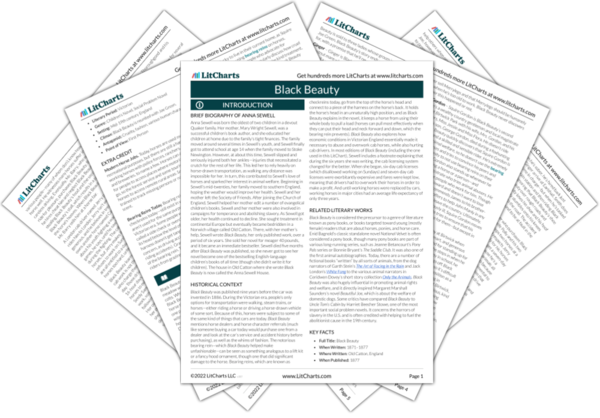Ginger is being facetious when she suggests humans insist that foals be born with forward-facing eyes, but she crystallizes one of the novel’s big ideas: that people are, perhaps, getting too full of themselves and are essentially trying to play God when they try to change how an animal looks or moves. The horses all suggest that, left to their own devices, they’re very good at keeping themselves and people safe—but they’re
not always left to their own devices, and everyone suffers for it.
